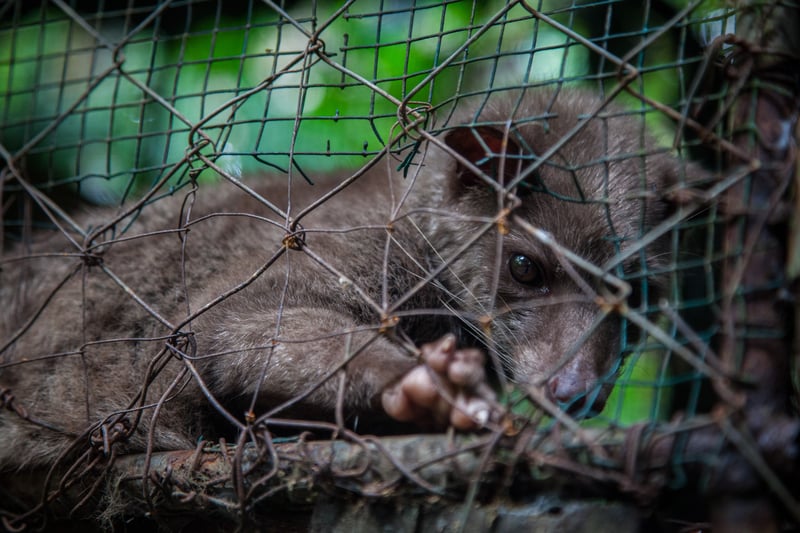
The true cost of the world’s most expensive coffee
News
The suffering involved in the production of civet coffee has been highlighted by World Animal Protection (formerly known as WSPA) in a paper written for ‘Oryx’, the International Journal of Conservation.
The paper examines the true cost of the world’s most expensive coffee, looking at the suffering experienced by civet cats in its production and the threat it poses to their population.
Read a summary of the paper here
An investigation by the BBC in September 2013 revealed that civet cats were being kept in cages in Indonesia, to feed the global trend for ‘civet coffee’ – a type of coffee produced from beans excreted by civets.
As World Animal Protection, we verified the BBC’s footage and launched a campaign urging retailers to stop selling the coffee unless they could guarantee it was genuinely wild sourced and cage-free.
Over the past few months, we have succeeded in persuading leading retailers all around the world to either stop selling civet coffee or switch suppliers.
We are currently working with certification bodies to improve their standards and calling upon them to create an appropriate certification scheme. This would stop consumers from being able to buy coffee from caged civets unintentionally.
Dr Neil D’Cruze, World Animal Protection’s Head of Wildlife Research and Policy, the lead author on the paper said: “I have seen first-hand the suffering experienced by these animals. Kept in small, dirty cages that fail to meet their basic needs, these conditions often result in high levels of morbidity and mortality. The torment that they endure for a cup of coffee is totally unacceptable. We must expose the true cost of the world’s most expensive coffee and stop these wild animals from living in such horrific conditions."
We have had discussions with UTZ and Sustainable Agriculture Network about how to incorporate animal welfare in their criteria for sustainability and how to guard against caged civet coffee production specifically. We are awaiting the results of these discussions and continue to be in contact with these two organisations as well as others involved in the issue.
We must expose the true cost of the world’s most expensive coffee and stop these wild animals from living in such horrific conditions.